Learning about sharks
Words by: Daniela Vilema and Beatriz Mariño
‘Galápagos needs sharks, sharks need Galápagos.’ This is the main focus of the environmental education workshops that have been developed for 5th, 6th and 7th graders in all the schools of Santa Cruz, the most populous island of the Galápagos archipelago. The workshops will soon also be conducted on the islands of Floreana, San Cristóbal and Isabela as part of the ‘Protect the Fins and the Ocean Wins’ campaign that the Charles Darwin Foundation (CDF) has been developing over the past month.
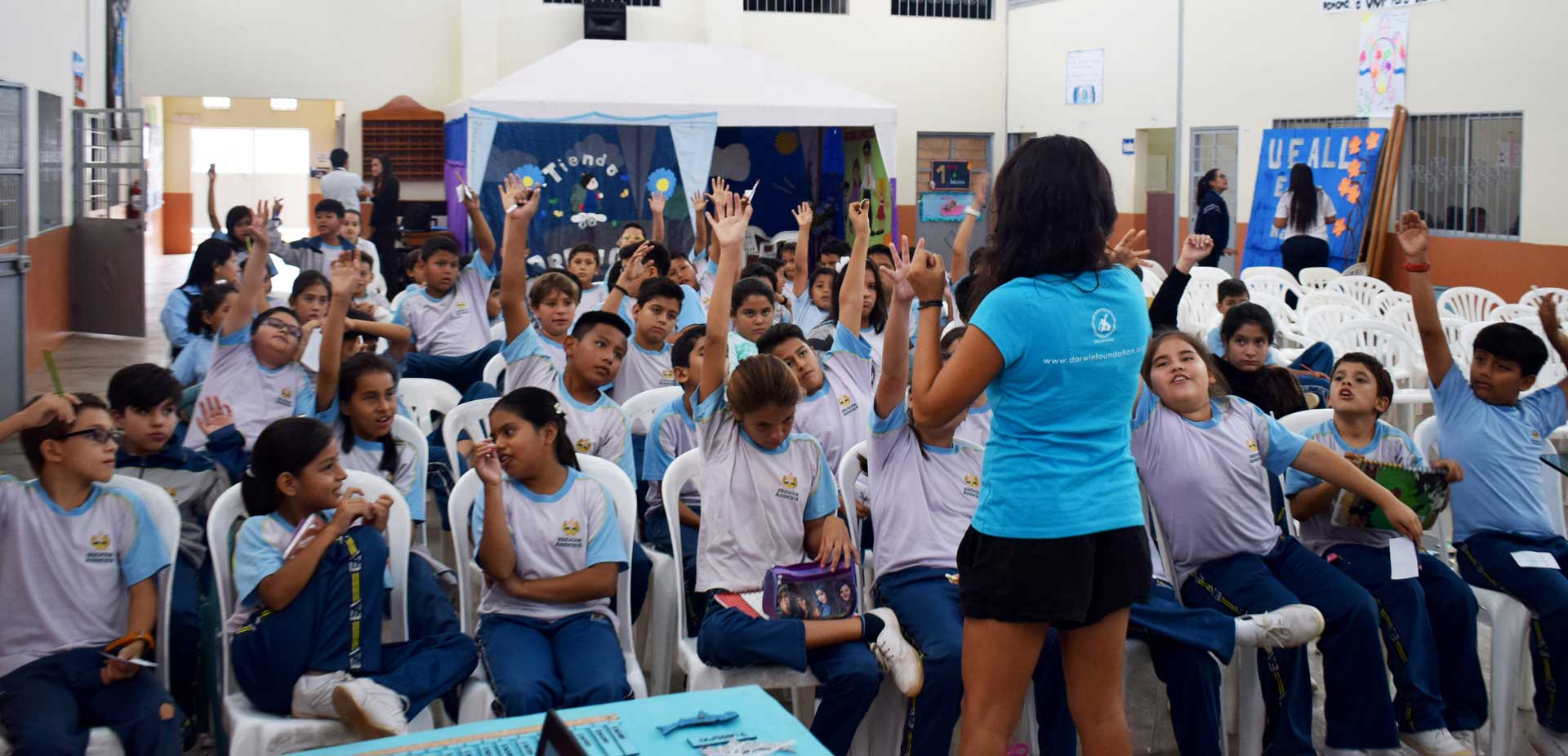
Photo © Charles Darwin Foundation
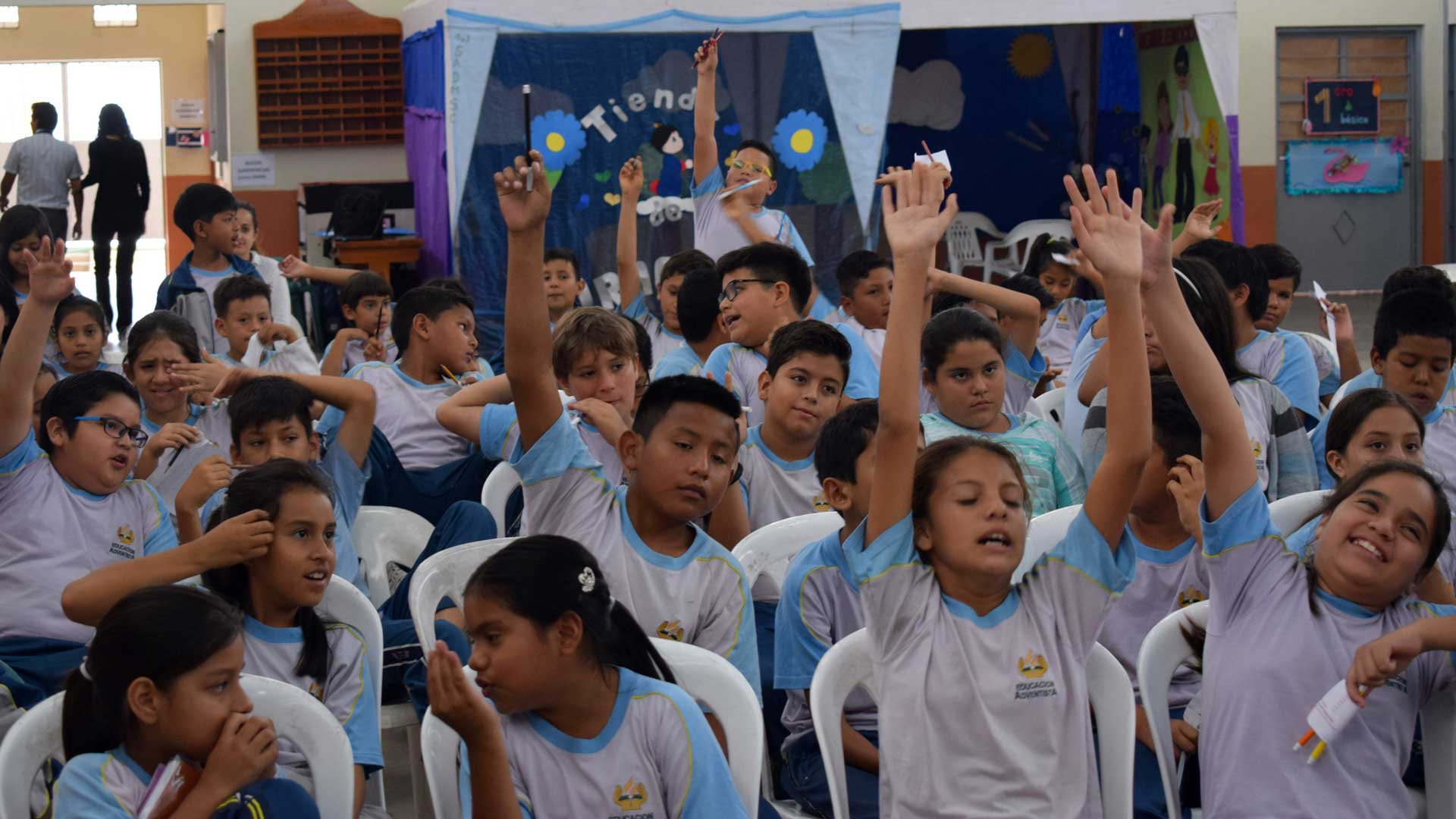
Photo © Charles Darwin Foundation
‘What comes to mind when I say the word “shark”?’ we ask the students before every workshop. We receive positive responses such as ‘Animals that clean the oceans!’ or ‘Tourists come to see them!’, but we also encounter answers such as ‘They are dangerous!’ or ‘They eat people!’ The latter category doesn’t surprise us, given the bad publicity sharks have received in movies or from sensationalist news in the media. That’s why we are working to change this negative perception by providing children with information about sharks – from their anatomy to their tourism value – so that they can appreciate them.
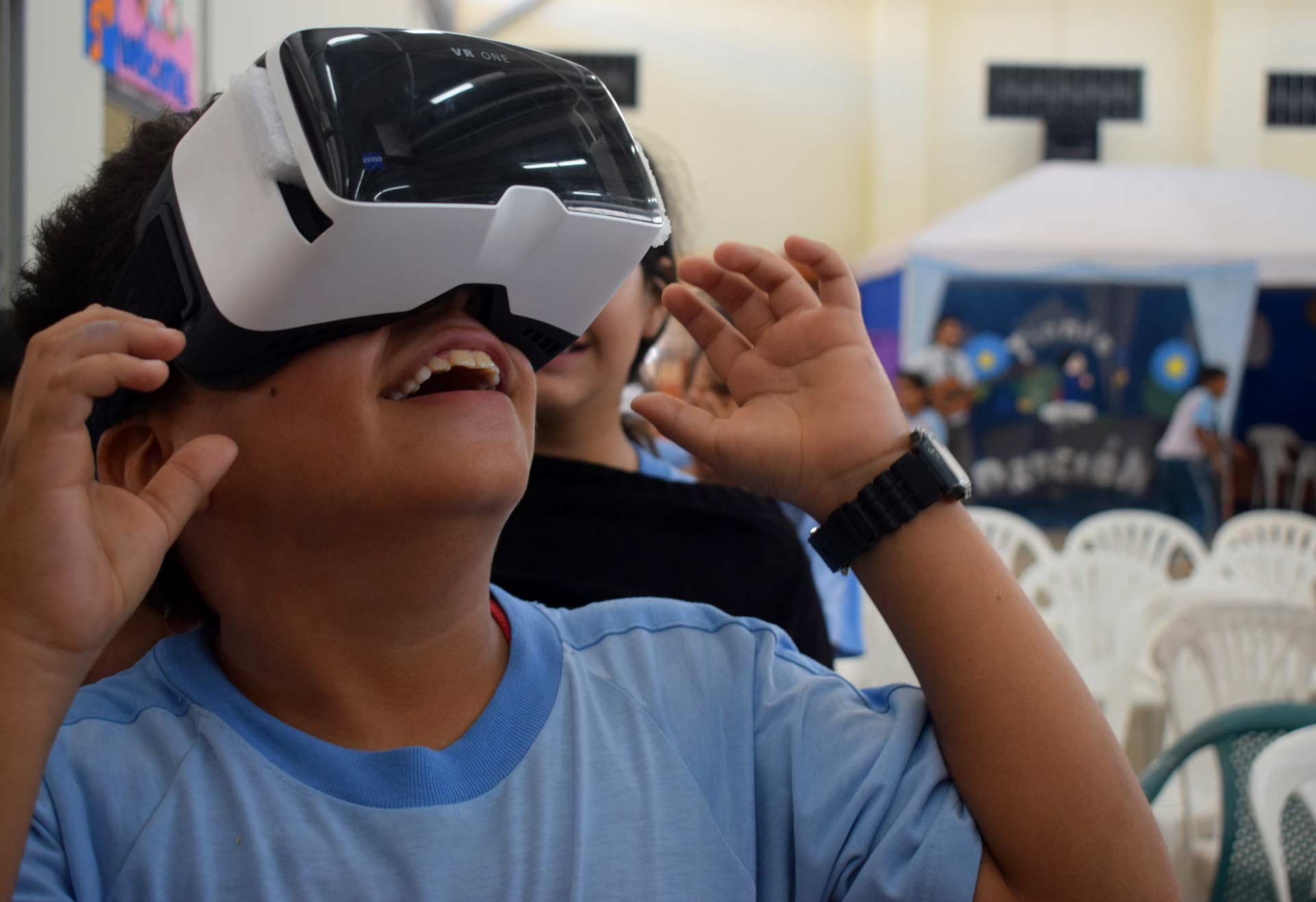
© Charles Darwin Foundation
Dynamism, engagement and creativity are the main pillars of our workshops. What are sharks? What is their role in the ecosystem? Are sharks worth more dead or alive? Are humans part of their diet? We ask these kinds of questions to evaluate the students’ initial perceptions and knowledge about sharks. Then we answer their questions and provide explanations, using various supporting materials that will leave lasting impressions in the children’s minds. A model showing shark anatomy that the children can assemble and a marine ecosystem panel to demonstrate the role of sharks are examples, as well as an immersive experience with virtual reality glasses that enables the children to observe, as virtual divers, the underwater life of the Galápagos and how majestically whale sharks swim.
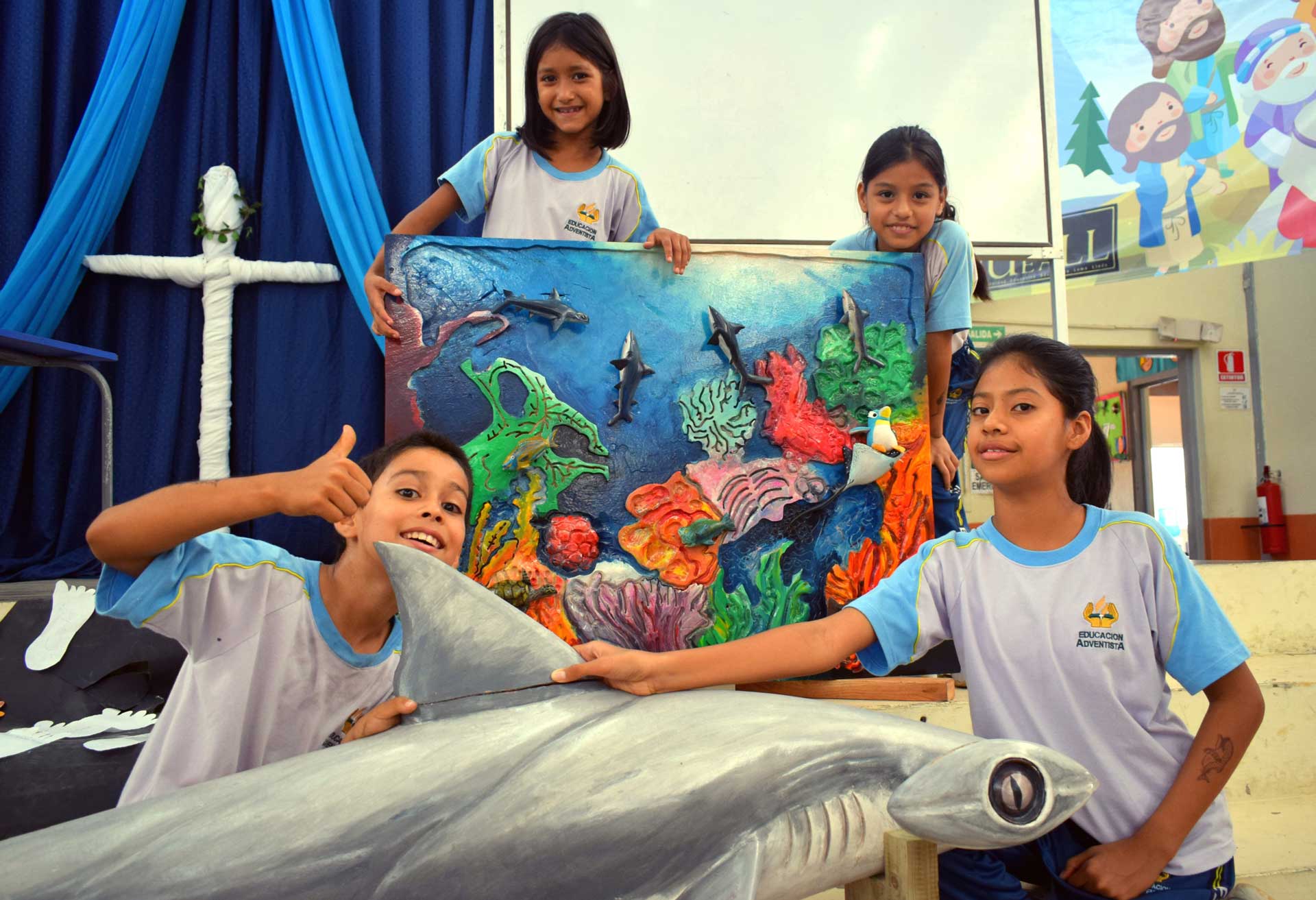
Photo © Charles Darwin Foundation
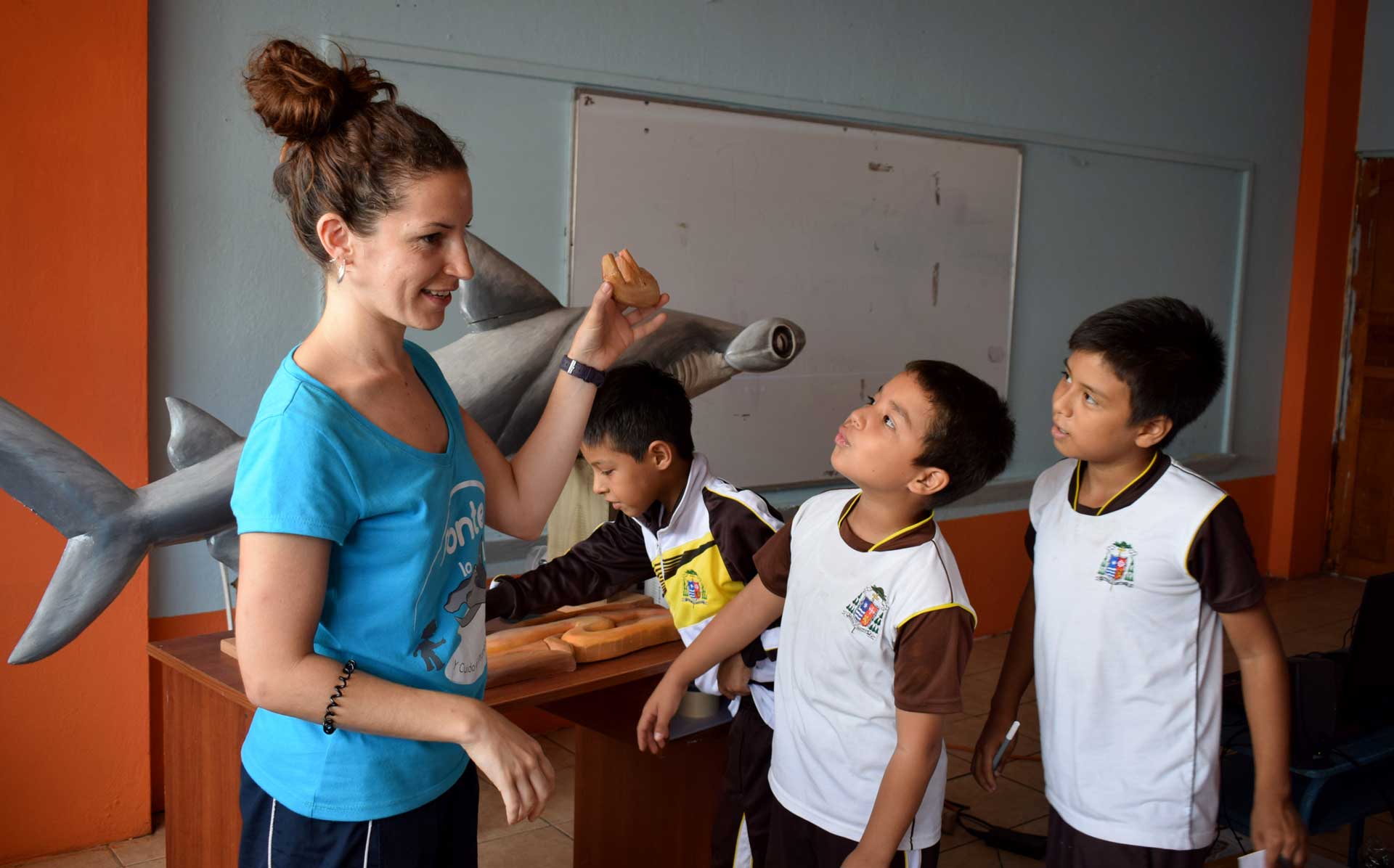
Photo © Charles Darwin Foundation
Our diverse educational materials ensure that we tap into the children’s curiosity, one way or another. Among our educational materials are animated videos featuring special shark characters, each one focusing on a specific topic: Guillo the hammerhead explains shark anatomy and shark vulnerability; Ron the Galapagos shark talks about the current global situation of sharks; Vanessa the tiger shark describes the significant role played by sharks in the ocean; and Ramona the whale shark discusses the importance of marine protected areas.
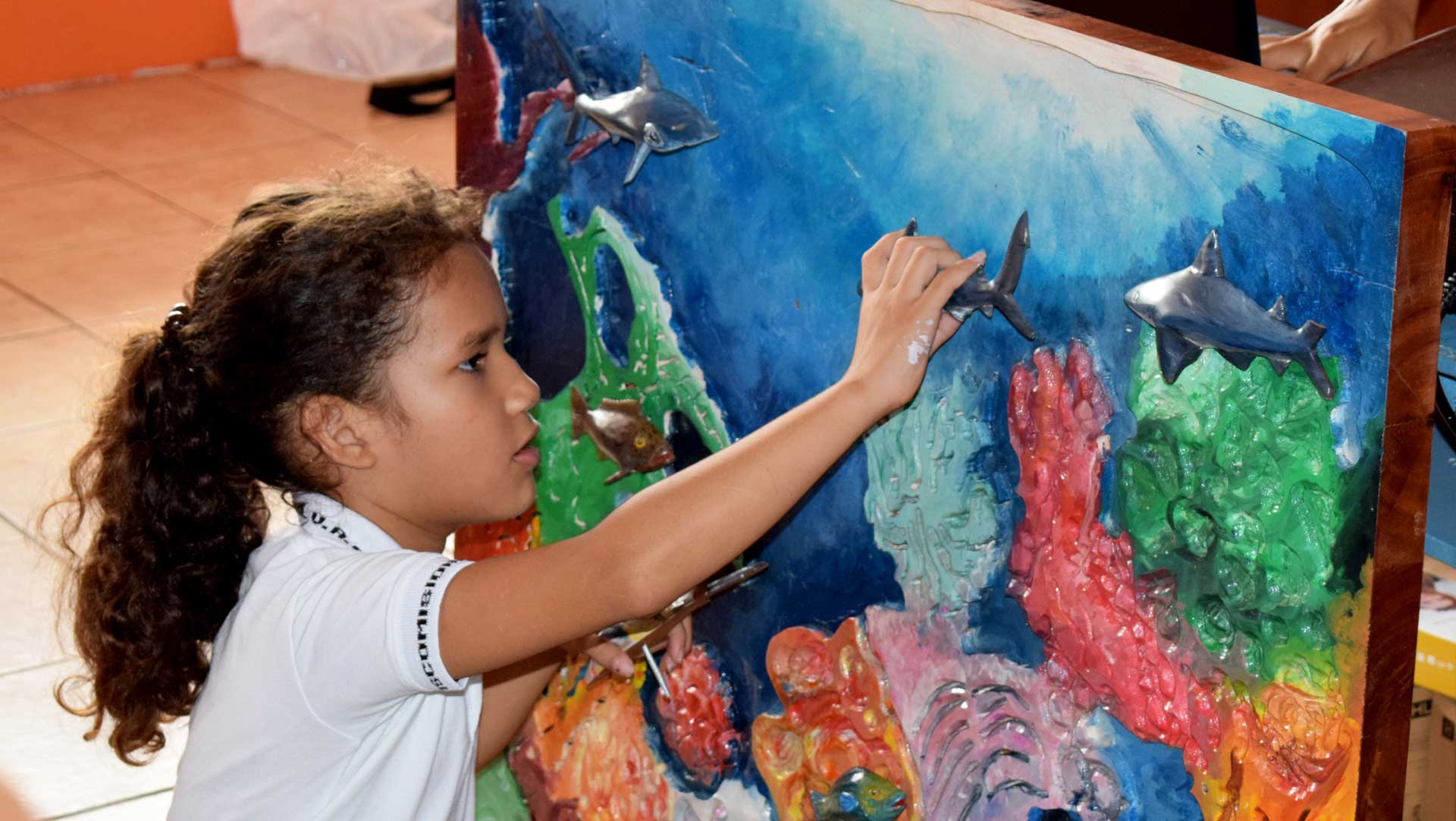
Photo © Charles Darwin Foundation
In addition, to motivate interest in research and promote the creative spirit of kids, we held a story and drawing contest that focused on sharks and the Galápagos. The winners will have the opportunity to go on a snorkelling field trip with the CDF marine team as well as famous international free divers who will soon be visiting the island.
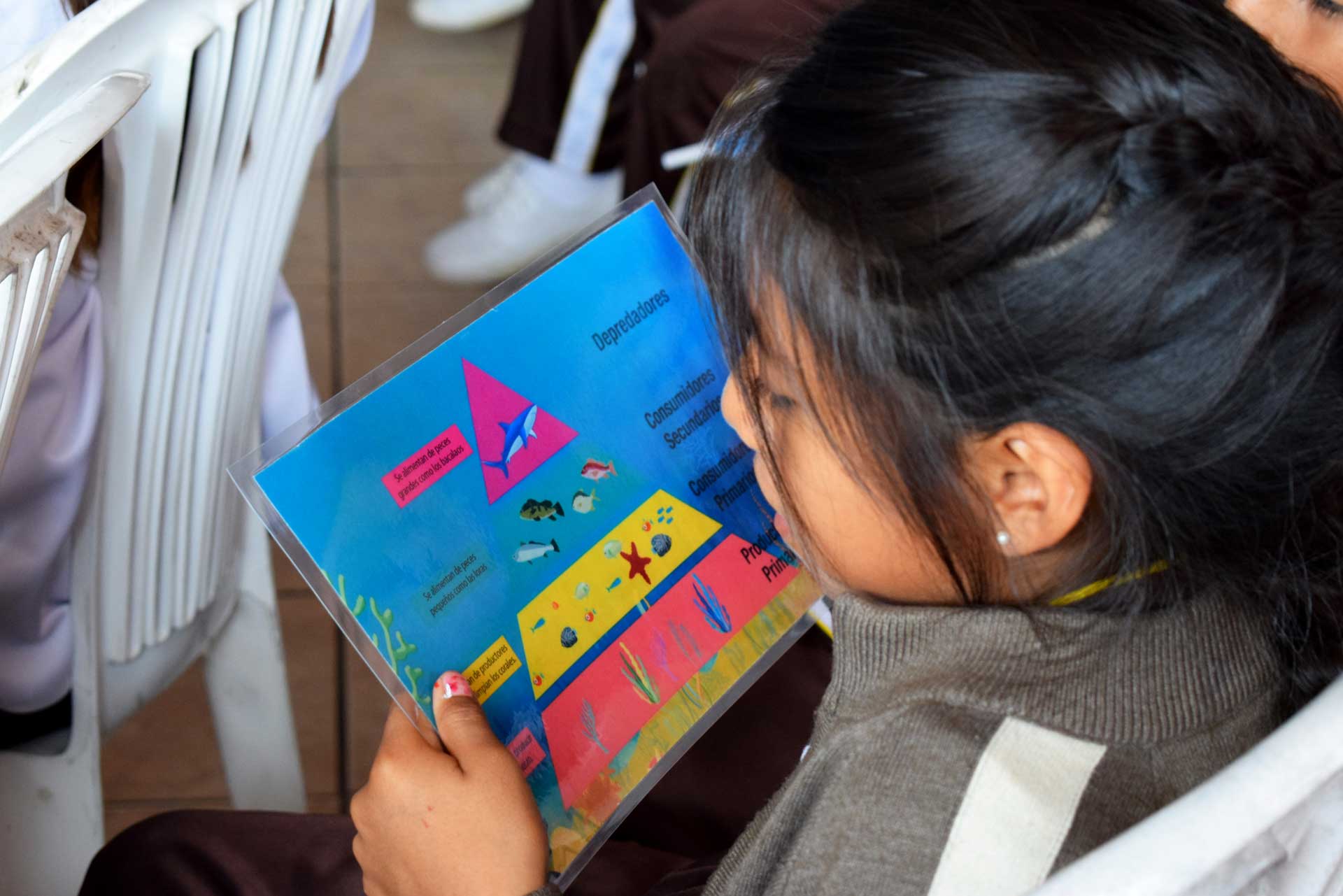
Photo © Charles Darwin Foundation
To the workshops was added the development of an event to celebrate Shark Week, in which different educational and outreach activities were conducted for the local community.
‘To protect reality, we need to know it’, which is why generating knowledge – and circulating it – is so important. Only through knowledge, only by understanding the vulnerability of the environment, will we be able to protect it.
